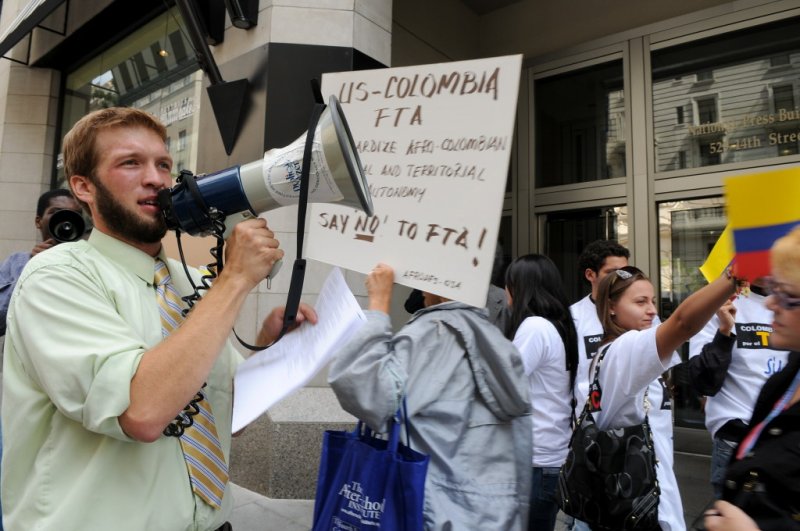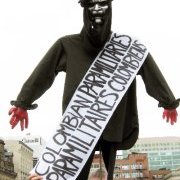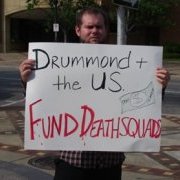
On 27 February 2006, the United States and Colombia reached a Trade Promotion Agreement whose negative impacts were immediately subjected to severe criticism by civil society. The perks granted to the US by the new FTA, especially concerning agriculture and national treatment, rapidly became public knowledge.
One controversial provision concerned quotas on “special” agricultural products that are allowed to enter Colombia in limited quantities without tariffs from the very first year of the FTA; these quotas were increased at the signing of the agreement. Furthermore, the US insisted on Colombia’s acceptance of beef from cows over 30 months, a latent animal and human health risk due to the possible entry of “mad cow” infected animals.
The agreement was approved by the Colombian Congress over the opposition of the Polo Democrático Alternativo and the Colombian Liberal Party. The U.S. Congress later emerged as its chief opponent, rejecting the treaty after the Democratic Party won majorities in both houses and adopted a more aggressive stance on Bush administration policies.
The Democrats argued that the Uribe government had not done enough to curtail the paramilitaries’ crimes against humanity. Colombia, they said, should first put an end to violence against trade unionists and peasants, and indict politicians implicated in the “paragate” scandal (collusion with the paramilitary United Self-Defense Forces and with drug trafficking mafias).
A vote on the deal was put off in April 2008 after President Bush sent the corresponding bill to Congress despite a recommendation against this move on the part of Speaker Nancy Pelosi. Pelosi sought a change to the House rules to prevent the fast-track timetable from kicking in.
In Colombia, opposition has remained firm in recent years, with various sectors mobilizing heavily to resist the FTA. The most recent large-scale mobilization was the “Minga,” in which indigenous people from all over the country traveled thousands of kilometers to Bogotá to reject the FTA, among other demands. Many other sectors of Colombian society signed on to the indigenous mobilization.
Despite the continuing resistance, the Colombian government benefitting from an improved image under President Santos (even though the policies and problems of the Uribe administration persist) won the approval for its FTA with the United States from the US Congress on 10 October 2011. It entered into force on 15 May 2012. Putting this FTA into motion required the approval of more than 15 regulations in the form of laws or decrees to bring Colombia legislation into line with the FTA on issues such as intellectual property, safeguards and tariffs.
last update: May 2012
Photo: Public Citizen







